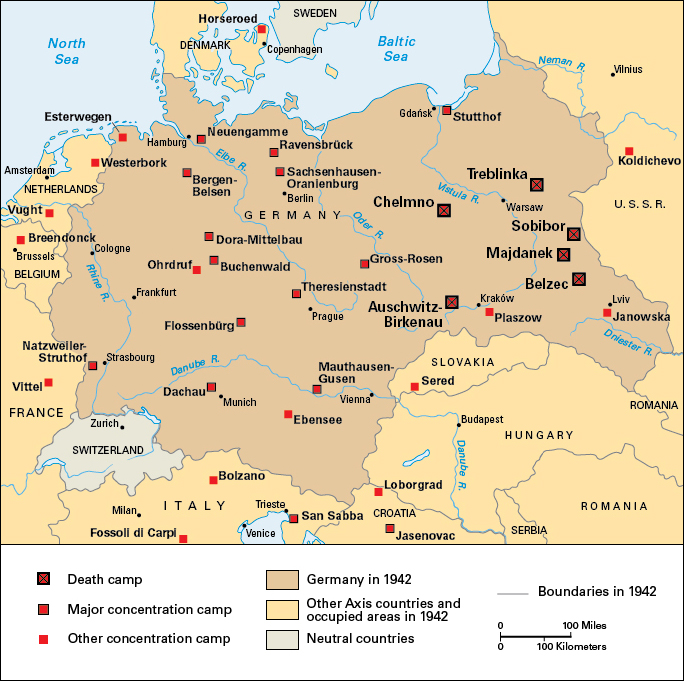Bergen-Belsen was a prison and concentration camp near Hanover in north-central Germany during World War II (1939-1945). The camp was named for the nearby villages of Bergen and Belsen. It is often referred to simply as Belsen. Many thousands of people died at Belsen, including the young diarist Anne Frank (see Frank, Anne ).
The Germans established a prisoner of war camp at Bergen-Belsen in mid-1940. Held under extremely harsh conditions, thousands of prisoners died of abuse, disease, and starvation. In April 1943, the Germans began constructing a new camp at Belsen to hold Jews they intended to exchange for Germans detained in Allied countries. The first of these exchange prisoners arrived in July. The majority of the Jews came from Hungary, the Netherlands, and Poland. Because they were intended for exchange, Jews were, for a time, treated better at Belsen than at other concentration camps. However, few of Belsen’s detainees were ever exchanged.
In late 1944, conditions at Bergen-Belsen deteriorated rapidly. At that time, German forces were in retreat from Allied forces. The Nazis evacuated concentration camps outside Germany and moved many of the prisoners to Belsen, which became dangerously overcrowded. Thousands of people died of starvation and disease—particularly typhus (see Typhus ). In March 1945 alone, some 18,000 prisoners died.

On April 15, 1945, the British Army liberated about 60,000 of Belsen’s surviving prisoners. Many of these prisoners, starving and ill, died soon after. The British also found more than 10,000 corpses stacked in piles or scattered about the camp. From 1940 through 1945, more than 70,000 people died at Belsen. More than 50,000 of these people were prisoners of the concentration camp. The rest were prisoners of war.
The British burned Belsen’s contaminated camp buildings. They then placed a number of the camp’s staff on trial for war crimes. Most of those tried were members of the Schutzstaffel (SS), a special Nazi military group. The Belsen Trial—a precursor to the Nuremberg Trials—led to the execution of 11 SS staff members in December 1945. Today, a memorial complex marks the site of the former Bergen-Belsen concentration camp.
See also Concentration camp ; Holocaust ; Nazism ; Nuremberg Trials ; Schutzstaffel (SS) .
